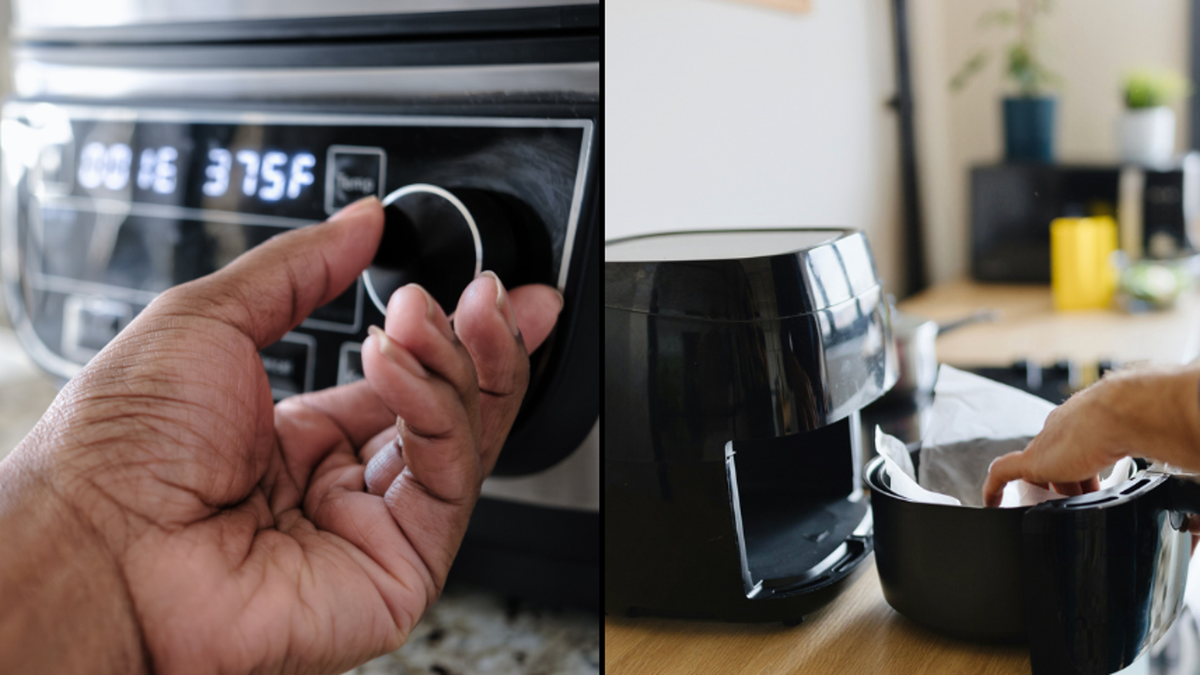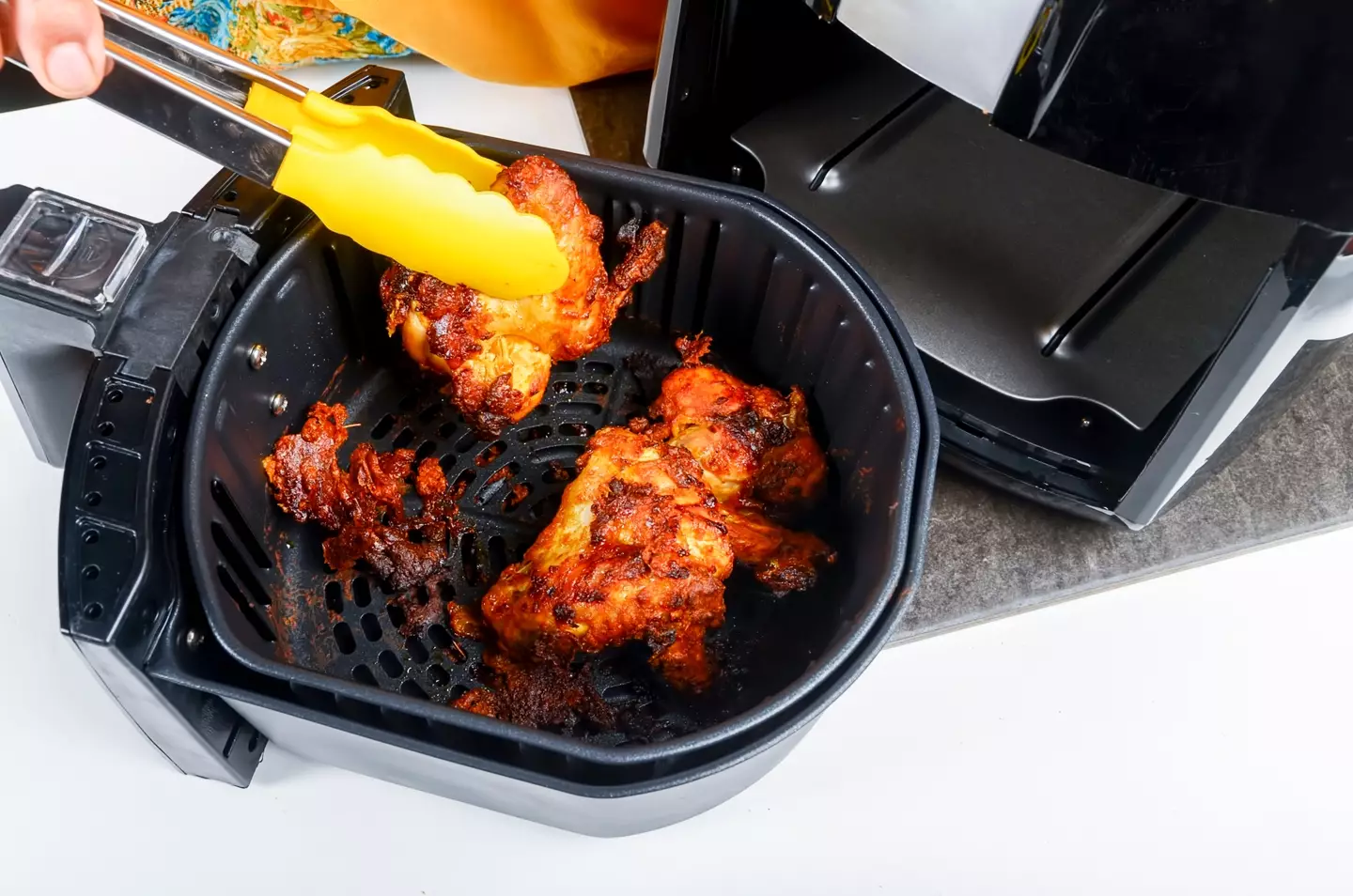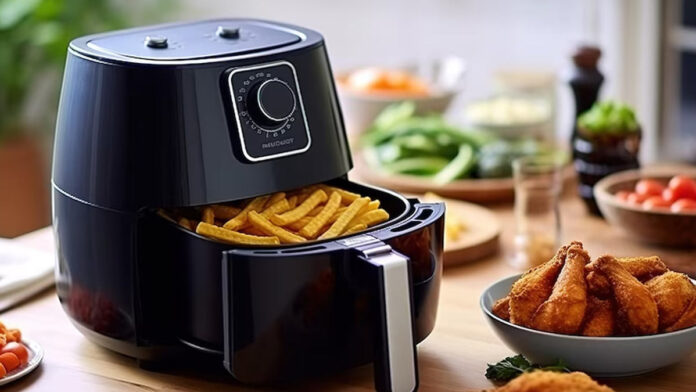Air fryers, hailed as a modern cooking marvel, have revolutionised the way people prepare food. Promising healthier meals by reducing the need for excessive oil, these gadgets are a staple in many kitchens. However, experts are raising red flags about the potential health risks associated with air fryers, especially those with non-stick coatings. From toxic fumes to carcinogenic compounds, air fryers may pose hidden dangers that warrant caution.
How Air Fryers Work
Air fryers operate as a counter top convection oven, using a heating element and high-speed fan to circulate hot air around the food. This process creates a fried texture with little to no oil, making air fryers a popular choice for those seeking healthier alternatives to deep frying. Unlike deep fryers that submerge food in oil, air fryers rely on heated air and tiny oil droplets, resulting in lower calorie and fat content.

While air fryers have their benefits, their drawbacks stem from the materials used in their construction and the high temperatures they require. Experts have flagged these aspects as potential health hazards.
Toxic Fumes and Carcinogens: The Dark Side of Air Fryers
Non-Stick Coatings and Heavy Metal Toxicity
One of the main concerns revolves around the non-stick coating commonly used in air fryers. According to gut-health expert Dr. Dimple Jangda, these coatings can release harmful fumes and chemicals when heated. “Air fryers are mostly coated with a non-stick material that emits toxic fumes at high temperatures,” Dr. Jangda explained. She also highlighted the risk of heavy metals leaching into food from the wire coatings inside air fryers. “These heavy metals can lead to toxicity, potentially damaging the liver and kidneys over time.”
Dr. Jangda also warned about a condition known as “Teflon flu,” caused by inhaling fumes from overheated non-stick coatings. Symptoms mimic those of influenza and include respiratory issues, such as bronchial irritation.
Carcinogenic Compounds: Acrylamides and PAHs
Cooking at high temperatures in air fryers can produce acrylamides and polycyclic aromatic hydrocarbons (PAHs), both of which are linked to cancer risks. Acrylamides form when sugars and asparagine, an amino acid found in many plant-based and animal-derived foods, are exposed to extreme heat. Foods like potatoes, grains, soy, nuts, poultry, and dairy are particularly susceptible.

PAHs, another byproduct of high-temperature cooking, are also potential carcinogens. These compounds arise during grilling, frying, and roasting processes, raising health concerns when air fryers are used improperly.
Minimizing the Risks: Tips for Safer Air Frying
Despite the risks, air fryers can still be used safely with a few adjustments. Experts, including Dr. Jangda, offer practical tips to reduce health hazards while enjoying the convenience of air frying:
- Choose Safer Materials
Opt for air fryers made of stainless steel or ceramic instead of models with non-stick coatings. These materials are less likely to release toxic fumes or leach heavy metals into food. - Monitor Cooking Temperatures
Avoid using air fryers at excessively high temperatures. Lower cooking settings can help minimize the production of acrylamides and other harmful compounds. - Inspect and Maintain Equipment
Regularly check your air fryer for signs of wear and tear. A damaged non-stick coating can release more toxins into food. If the coating begins to chip or peel, it’s time to replace the appliance. - Avoid Prolonged Use
Do not leave food in the air fryer for extended periods, especially overnight. Overcooking can exacerbate the formation of harmful chemicals. - Shorten Cooking Times
Reduce the duration of cooking to limit the exposure of food to high temperatures. This simple step can significantly decrease the risk of carcinogen formation.
Air Frying vs. Deep Frying: A Comparison
While air frying is often marketed as a healthier alternative to deep frying, understanding the differences is crucial:
- Oil Usage: Air fryers use minimal or no oil, while deep fryers rely on large quantities of oil. This makes air frying less calorie-dense and heart-healthier.
- Cooking Time: Air fryers take longer to cook food compared to deep fryers, as oil conducts heat more efficiently than air.
- Texture and Flavor: While air fryers replicate the texture of fried foods, some users find the taste less satisfying than traditional deep frying.
Despite these distinctions, both cooking methods have their pros and cons. Air fryers may reduce calorie intake, but the potential risks associated with non-stick coatings and high temperatures highlight the importance of cautious usage.
Expert Recommendations: Is Air Frying Worth It?
Dr. Jangda suggests reconsidering the reliance on air fryers altogether. “Using a simple pan with half a teaspoon of oil can be a healthier and safer alternative,” she advised. Traditional cooking methods, such as sautéing or grilling, offer better control over temperature and avoid the risks posed by non-stick coatings.

However, for those who prefer the convenience of air fryers, choosing models made from safe materials and adhering to proper usage guidelines can mitigate health concerns. By understanding the potential hazards and taking preventive measures, users can continue to enjoy air-fried foods without compromising their well-being.
Final Thoughts
Air fryers, while a modern-day kitchen innovation, are not without their pitfalls. The convenience of low-oil cooking comes with hidden risks, including exposure to toxic fumes, heavy metals, and carcinogenic compounds. However, with informed choices—such as opting for safer materials, monitoring cooking temperatures, and maintaining equipment—air fryers can still be a part of a healthy lifestyle.
Ultimately, the decision to use an air fryer lies in balancing convenience with health. By staying aware of the risks and taking proactive measures, you can ensure your meals are both delicious and safe.

